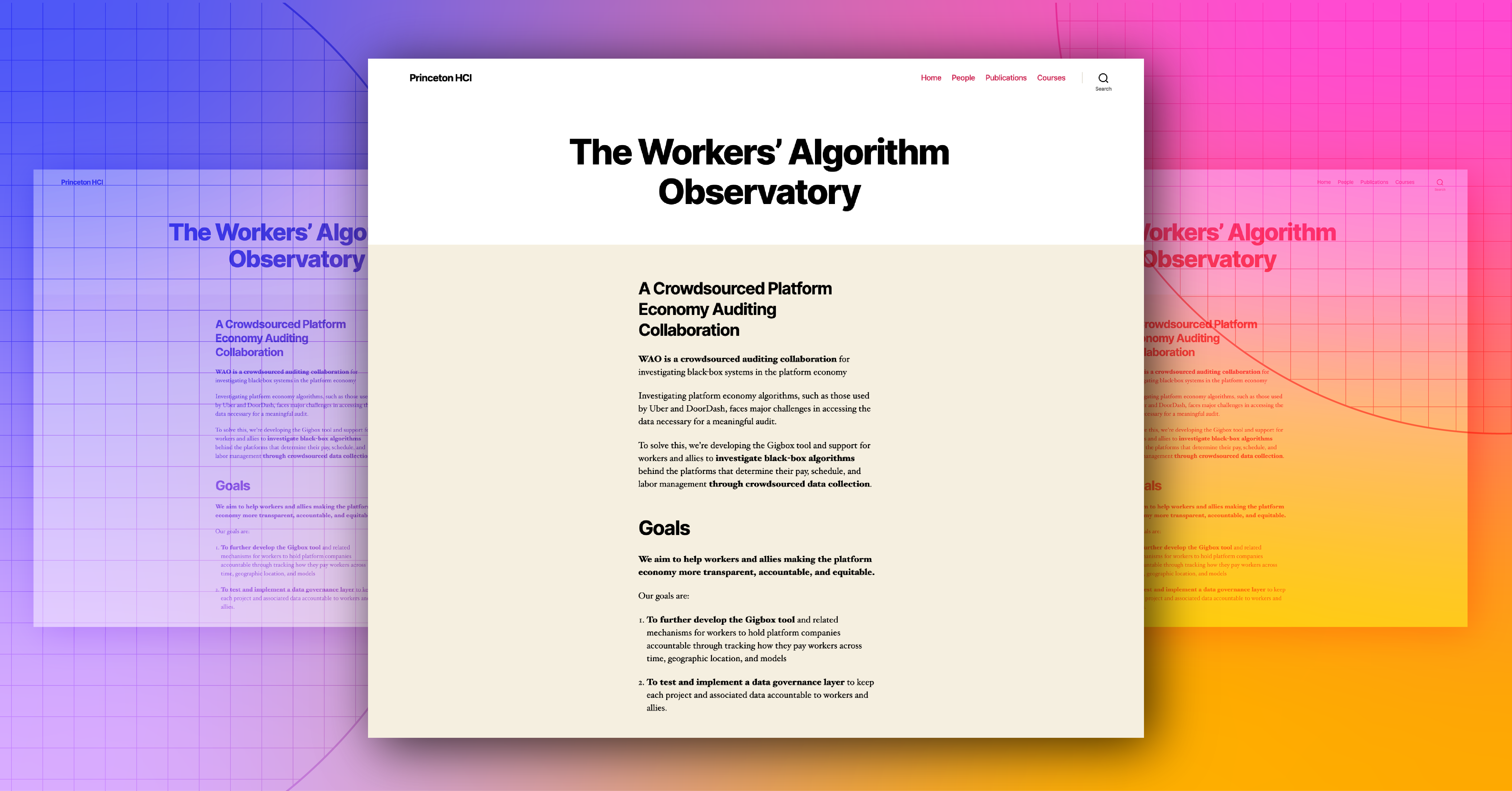
This is a profile of the Workers’ Algorithm Observatory (WAO), a Mozilla Technology Fund awardee
The players at the top of the gig economy — like Uber and Doordash — are extraordinarily wealthy corporations. But for the industry’s core workforce — the gig workers themselves — it’s a notoriously grueling job.
There’s no scarcity of stories about gig workers being underpaid, sometimes far below minimum wage. Or working inhumane hours. Or having their accounts (i.e. their livelihoods) randomly deactivated.
Meanwhile, the inner workings of their industry are shrouded in mystery. The data that gig workers produce isn’t shared back with them in a comprehensive way. Workers struggle to determine how their pay, hours, and other information compare to their peers, or to gig workers on other platforms.
But the Workers’ Algorithm Observatory, a Mozilla Technology Fund awardee, is pulling back that shroud. WAO plans to give workers a way to ask and answer crucial questions about gig work platforms and algorithms using data shared by drivers.
The Workers’ Algorithm Observatory is a crowdsourced auditing collaboration for investigating black-box systems in the platform economy, based in Princeton University’s Human-Computer Interaction program. Mozilla Technology Fund supports open-source technologists whose work furthers promising approaches to solving pressing internet health issues.
WAO’s Gigbox is an app, a research project, and a community that wants to unlock that tightly-held data and use it to empower gig workers. It allows workers on Uber, Lyft, Doordash, and other platforms to pool data to uncover helpful trends and patterns, like how to optimize their wages.
WAO’s Gigbox is an app, a research project, and a community that unlocks that tightly-held data and uses it to empower gig workers.
“We want to expand what it means to have a healthy workplace,” explains Samantha Dalal, a researcher and co-creator of the project.
WAO and Gigbox grew out of work by Dan Calacci and Danny Spitzberg, two researchers who focus on community-driven tools that allow gig workers to investigate their working conditions.
Dalal had been working in a similar domain: “Taking a sociological approach to understanding technology in the workplace for gig workers,” she explains. So the trio made a natural alliance.
The Gigbox tool, which is open-source, is already built. Now comes the even harder part: community building.
“The point of our project is to deeply center and engage with worker communities,” Dalal says. “We want to be the conduit for them to lead the investigations.” Dalal notes that previous research into these platforms has often sidelined gig workers, producing results that may be interesting to researchers but provide little value to workers.
Right now, the team is leveraging their contacts within the rideshare organizing industry, who are helping distribute recruitment materials. The team is also sitting down with workers and conducting “needs-finding interviews.” “We’re asking, What questions do you want answered? What data do you want?” Dalal says.
From there, the team will determine the full potential of the app. “We’ll identify which worker questions are tractable with the data we have,” Dalal notes.
In addition to helping individual workers, the team hopes to spark broader changes — like how the public understands the gig economy. “Right now the narratives around gig work are dominated by those private companies, because only they have access to those data sets,” Dalal says.
Dalal adds: “We also want to increase transparency for political accountability reasons. As momentum builds to regulate gig work platforms, “data-driven narratives are really important.”
